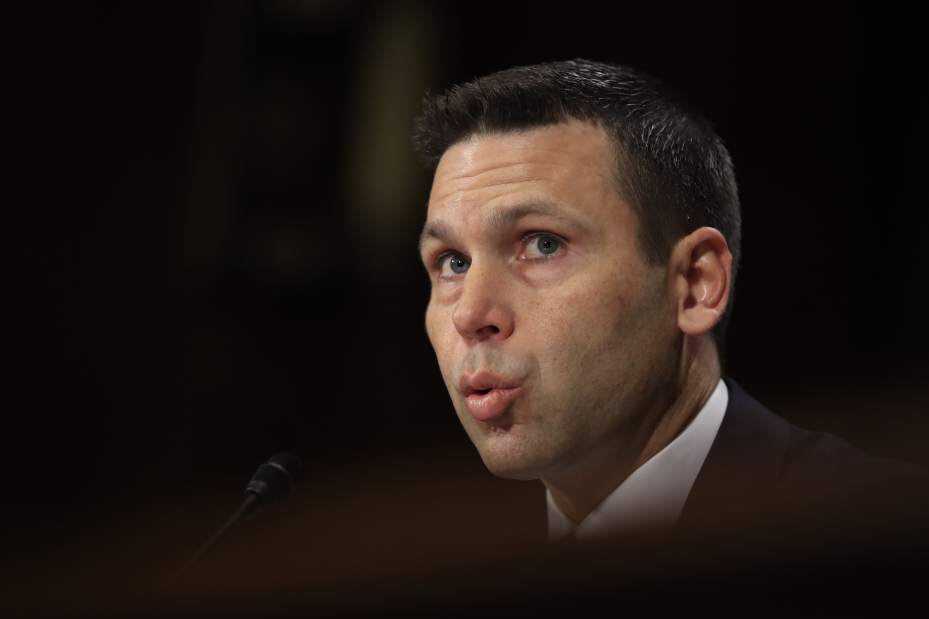A plan promoted by Virginia gubernatorial candidate Terry McAuliffe to build a million ultralow-power electric cars a year exceeds projected world demand for such vehicles by 1,800 percent.
What little demand exists is filled by well-established manufacturers.
Liz Povar, vice president of the Virginia Economic Development Partnership, voiced skepticism about McAuliffe's plan in a 2009 email to co-workers, saying it “feels like a national political play” and “a visa-for-sale scheme” benefiting corrupt Chinese millionaires trying to escape to the United States.
The project has led to two federal investigations — one by the Securities and Exchange Commission to determine whether company officials improperly raised money and one by the Department of Homeland Security's inspector general to determine whether appeals to obtain visas for foreign investors were improper.
Sen. Charles Grassley, R-Iowa, is pressing for more information on Homeland Security's handling of GreenTech visas. In a letter on Friday, Grassley told Alejandro Mayorkas, head of the U.S. Citizenship and Immigration Service , that he has received a torrent of “whistleblower” reports that Mayorkas interfered continuously on behalf of GreenTech.
Mayorkas — the Obama administration's choice to become Homeland Security's No. 2 official — testified during a Senate hearing that he played a minimal role in GreenTech's affairs.
Neither McAuliffe nor officials with his affiliated companies responded to requests for comment.
McAuliffe, a former chairman of the Democratic National Committee, is a confidant of Bill and Hillary Clinton. His challenger for governor is Virginia Attorney General Ken Cuccinelli.
Even before McAuliffe's involvement in GreenTech Automotive, former President Clinton promoted the plan during a speech in Hong Kong in 2008. An internal company email lists the expense: “Hong Kong Speech event: $400,000.” Clinton stood beside McAuliffe at a Mississippi groundbreaking ceremony for the company's plant after McAuliffe became its chairman.
To raise money from Chinese investors, McAuliffe bought Gulf Coast Funds Management for $2 million, a company in the green-card acquisition business, according to emails by Virginia officials. His name does not appear on the company's website. Instead, the site lists as CEO a former repo man and private detective-turned-international financier named Anthony Rodham, former Secretary of State Hillary Clinton's brother.
That company is supposed to raise billions from Chinese investors in support of GreenTech Automotive. McAuliffe stepped aside as chairman of GreenTech in December as he approached the Virginia governor's race. He owns an interest in the company, though how much is not clear.
The Trib gained some emails from the Virginia Economic Development Partnership. Watchdog.org, a news- gathering site, posted others online.
Federal intervention
Navigant Consulting, an industry leader, projects worldwide demand for GreenTech's Neighborhood Electric Vehicles will be 54,806 vehicles in 2017.
The vehicles often resemble very small cars or large golf carts and can go about 100 miles between charges.
GreenTech has said it will produce as many as million cars a year. It complained that federal officials delayed granting visas to Chinese investors, jeopardizing the company's prime source of start-up money.
When Department of Homeland Security officials balked at certain visa requests, McAuliffe and Rodham tried to go over their heads to keep the endeavor — called Project Mastiff — going. In a December 2010 letter, McAuliffe complained to then-Homeland Security Secretary Janet Napolitano that her underlings “halted Project Mastiff in its tracks.”
Before deciding to locate a plant in Mississippi, which offered tax concessions, McAuliffe approached Virginia officials.
“We have legitimate concerns about this start-up company's ability to successfully establish a major auto assembly operation in North America,” Mike Lehnkuhler, vice president of the Virginia Economic Development Partnership, said in an email to a staffer.
“Technology that is touted as a competitive advantage is either already available in the marketplace or lacking validation. The management team has no members with industry experience, and the touted ‘strategic partnerships' have not been established,” Lehnkuhler wrote.
Nevertheless, GreenTech said in its letter to Napolitano that it would raise $10 billion through the visa program, a possible initial public offering and partnerships. It would generate $28 billion in revenue and establish as many as 400,000 direct and indirect jobs, it has said.
Michelle Krebs, senior analyst at Edmunds.com, which provides car research and reviews, said demand for such cars is “extremely limited.”
“What's the point?” she said, noting that many states do not permit such cars on highways.
Chinese connections
The project is funded by Chinese businessmen, each of whom would invest $500,000 in Mastiff and $75,000 to cover expenses of Rodham's company. For that, a Chinese businessman or official expects to earn a quick path to a green card and permanent U.S. residence for him and his family.
Homeland Security administers the program, called EB-5, to attract wealthy investors to establish permanent American jobs.
According to a federal lawsuit filed in Mississippi in 2009, the McAuliffe project initially was the brainchild of Rong Yeung, a former Chinese industrialist whom Forbes Magazine called the third-richest man in China in 2001.
Yeung fled China for the United States shortly after Chinese officials accused him of economic crimes. Although it appears to be incorrect, a company biography says he lived in Arkansas in 1993.
His partner in the original endeavor was Charles Wang, a lawyer who represented Chinese television manufacturers in a U.S. Commerce Department anti-dumping case.
Initially, Yeung and Wang planned to build a million-car-a-year plant in Alabama using EB-5 visa money. Then they split up and sued each other in court. What emerged was GreenTech Automotive and its plant planned for Mississippi. Wang was its CEO and president; McAuliffe, its chairman. Rodham became the fundraiser, running Gulf Coast Funds Management, which Homeland Security appointed as a regional EB-5 visa center.
The Tribune-Review reported in July that many rich Chinese want to move their money out of China's shaky economy and move their families to less-polluted American cities.
Paul Gillis, co-director of the MBA program at Peking University's Guanghua School of Management in Beijing, said making money on investments often is not the point — getting a green card is.
To do so, a Chinese investor must show Homeland Security that he is respsonsible for 10 direct or indirect jobs.
A 2009 story by The Associated Press quoted Wang as saying: “A lot of people want to move some of their money out of China.”
The Trib's 2012 series, “Shadow Economy,” showed that officials who track illicit flows of cash around the world found hundreds of billions of dollars — perhaps more than $2 trillion — left China over the past decade, much of it ending up in tax havens.
The market for very small electric cars has been tiny. Norwegian-carmaker Think Global AS filed for bankruptcy in 2011. Though its cars were highway-legal, they sold poorly — just 1,043 units in 2010.
In 2011, Chrysler sold its small electric car unit to Polaris Industries Inc. Chrysler had sold about 3,400 GEM cars a year since starting production in 1998.
Lou Kilzer is a Trib Total Media staff writer. Reach him at 412-380-5628 or lkilzer@tribweb.com.






